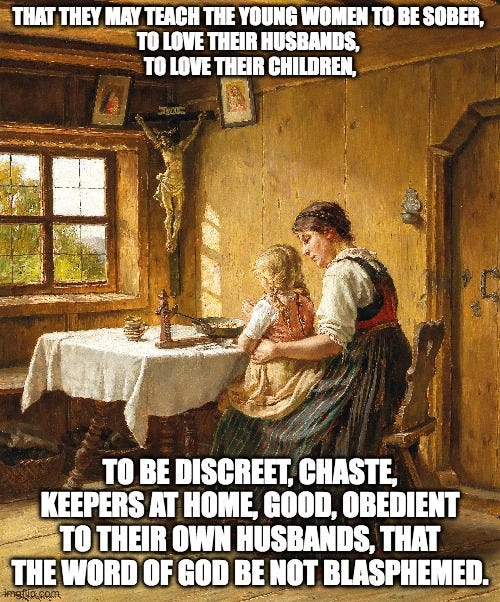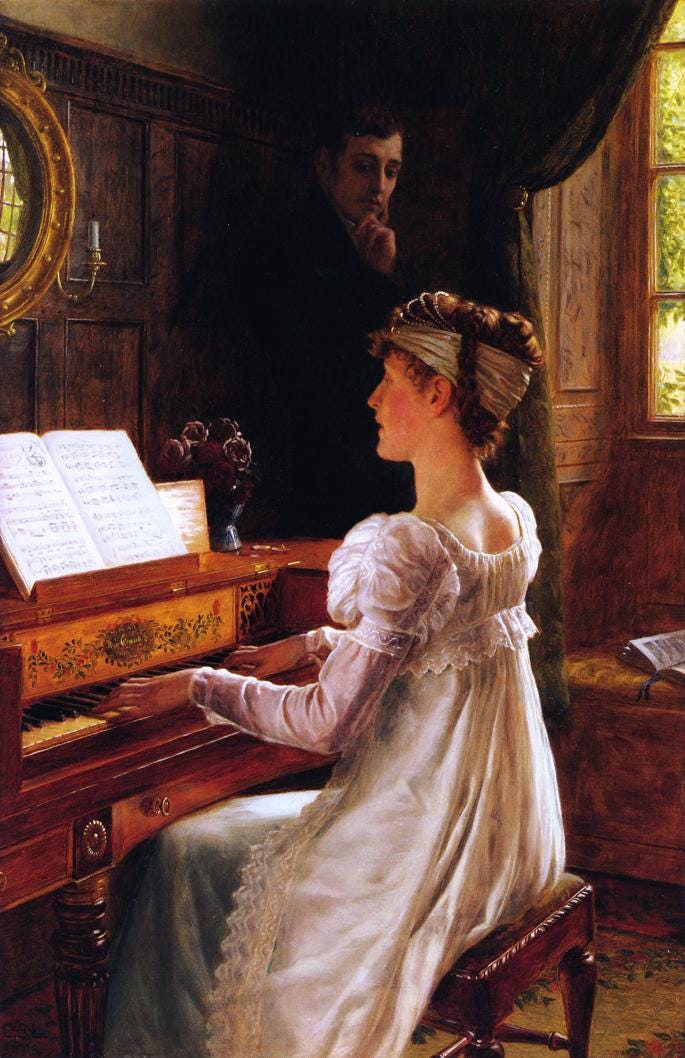The modern world must somehow be made to understand (in theology and other things) that a view may be vast, broad, universal, liberal and yet come into conflict with another view that is vast, broad, universal and liberal also. There is never a war between two sects, but only between two universal Catholic Churches. The only possible collision is the collision of one cosmos with another. So in a smaller way it must be first made clear that this female economic ideal is a part of that female variety of outlook and all-round art of life which we have already attributed to the sex: thrift is not a small or timid or provincial thing; it is part of that great idea of the woman watching on all sides out of all the windows of the soul and being answerable for everything. For in the average human house there is one hole by which money comes in and a hundred by which it goes out; man has to do with the one hole, woman with the hundred. But though the very stinginess of a woman is a part of her spiritual breadth, it is none the less true that it brings her into conflict with the special kind of spiritual breadth that belongs to the males of the tribe. It brings her into conflict with that shapeless cataract of Comradeship, of chaotic feasting and deafening debate, which we noted in the last section. The very touch of the eternal in the two sexual tastes brings them the more into antagonism; for one stands for a universal vigilance and the other for an almost infinite output. Partly through the nature of his moral weakness, and partly through the nature of his physical strength, the male is normally prone to expand things into a sort of eternity; he always thinks of a dinner party as lasting all night; and he always thinks of a night as lasting forever. When the working women in the poor districts come to the doors of the public houses and try to get their husbands home, simple minded “social workers” always imagine that every husband is a tragic drunkard and every wife a broken-hearted saint. It never occurs to them that the poor woman is only doing under coarser conventions exactly what every fashionable hostess does when she tries to get the men from arguing over the cigars to come and gossip over the teacups.
These women are not exasperated merely at the amount of money that is wasted in beer; they are exasperated also at the amount of time that is wasted in talk. It is not merely what goeth into the mouth but what cometh out the mouth that, in their opinion, defileth a man. They will raise against an argument (like their sisters of all ranks) the ridiculous objection that nobody is convinced by it; as if a man wanted to make a body-slave of anybody with whom he had played single-stick. But the real female prejudice on this point is not without a basis; the real feeling is this, that the most masculine pleasures have a quality of the ephemeral. A duchess may ruin a duke for a diamond necklace; but there is the necklace. A coster may ruin his wife for a pot of beer; and where is the beer? The duchess quarrels with another duchess in order to crush her, to produce a result; the coster does not argue with another coster in order to convince him, but in order to enjoy at once the sound of his own voice, the clearness of his own opinions and the sense of masculine society. There is this element of a fine fruitlessness about the male enjoyments; wine is poured into a bottomless bucket; thought plunges into a bottomless abyss. All this has set woman against the Public House—that is, against the Parliament House. She is there to prevent waste; and the “pub” and the parliament are the very palaces of waste. In the upper classes the “pub” is called the club, but that makes no more difference to the reason than it does to the rhyme. High and low, the woman’s objection to the Public House is perfectly definite and rational, it is that the Public House wastes the energies that could be used on the private house.
As it is about feminine thrift against masculine waste, so it is about feminine dignity against masculine rowdiness. The woman has a fixed and very well-founded idea that if she does not insist on good manners nobody else will. Babies are not always strong on the point of dignity, and grown-up men are quite unpresentable. It is true that there are many very polite men, but none that I ever heard of who were not either fascinating women or obeying them. But indeed the female ideal of dignity, like the female ideal of thrift, lies deeper and may easily be misunderstood. It rests ultimately on a strong idea of spiritual isolation; the same that makes women religious. They do not like being melted down; they dislike and avoid the mob. That anonymous quality we have remarked in the club conversation would be common impertinence in a case of ladies. I remember an artistic and eager lady asking me in her grand green drawing-room whether I believed in comradeship between the sexes, and why not. I was driven back on offering the obvious and sincere answer “Because if I were to treat you for two minutes like a comrade you would turn me out of the house.” The only certain rule on this subject is always to deal with woman and never with women. “Women” is a profligate word; I have used it repeatedly in this chapter; but it always has a blackguard sound. It smells of oriental cynicism and hedonism. Every woman is a captive queen. But every crowd of women is only a harem broken loose.
I am not expressing my own views here, but those of nearly all the women I have known. It is quite unfair to say that a woman hates other women individually; but I think it would be quite true to say that she detests them in a confused heap. And this is not because she despises her own sex, but because she respects it; and respects especially that sanctity and separation of each item which is represented in manners by the idea of dignity and in morals by the idea of chastity.
Thank you for reading Von’s Substack. I would love it if you commented! I love hearing from readers, especially critical comments. I would love to start more letter exchanges, so if there’s a subject you’re interested in, get writing and tag me!
Being ‘restacked’ and mentioned in ‘notes’ is very important for lesser-known stacks so… feel free! I’m semi-retired and write as a ministry (and for fun) so you don’t need to feel guilty you aren’t paying for anything, but if you enjoy my writing (even if you dramatically disagree with it), then restack, please! Or mention me in one of your own posts.
If I don’t write you back it is almost certain that I didn’t see it, so please feel free to comment and link to your post. Or if you just think I would be interested in your post!
Thanks again, God Bless, Soli Deo gloria,
Von
Links
Poems
Posting and analysing some important poems.
Rudyard Kipling
The Gods of the Copybook Headings
The Benefactors
The Female of the Species
The Benefactors
Edgar Guest
Keep Going
One More Turn
The Glory of the Garden
It Takes a Heap O’Livin
Sue’s Got a Baby
Only a Dad
Is Anybody Happier?
Can’t
On Quitting
Thomas J. Williams
Once to Every Man or Nation
JRR Tolkien
I Sit Beside the Fire and Think
Quotes
A bunch of fun and significant quotes:







